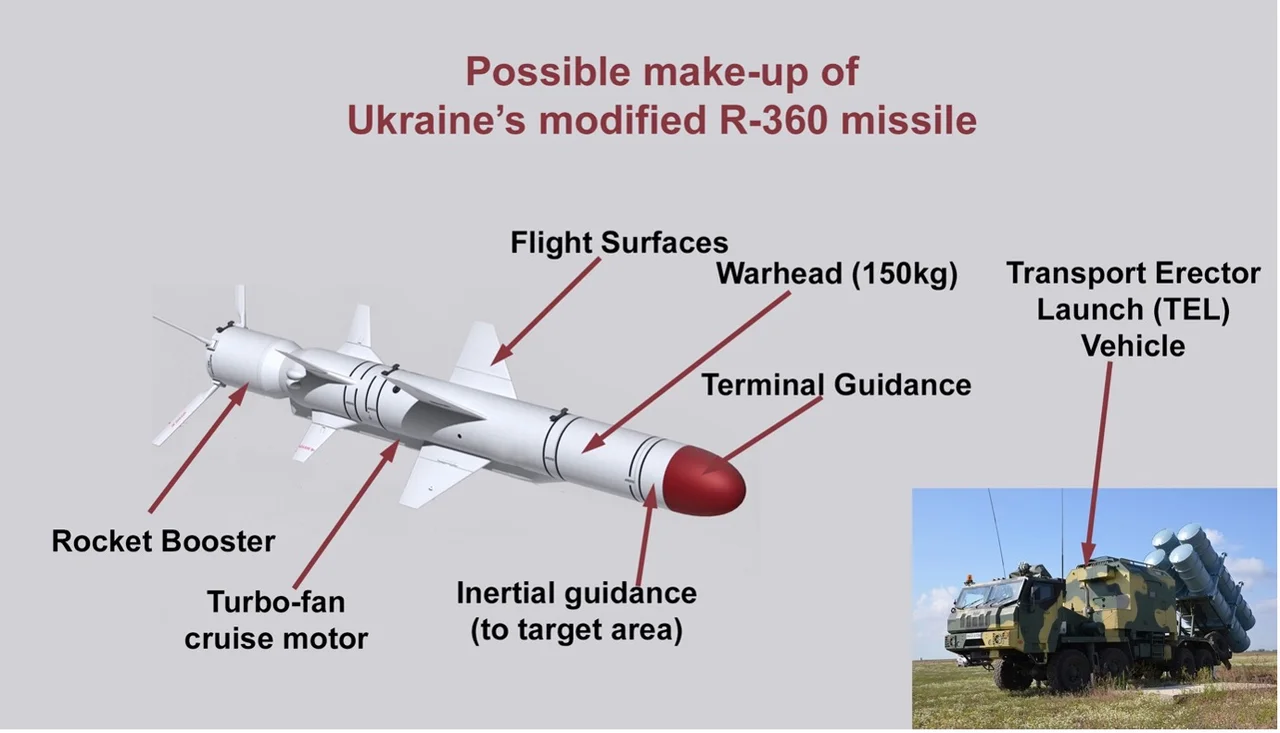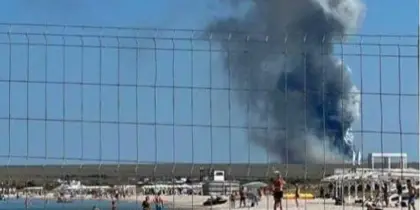With allies reluctant to provide long-range missiles that could be used against targets in Russia, Kyiv has decided to build its own weapons systems and become a leader in the defense industry sphere.
Ukraine’s first operational use of such a new domestically produced long-range missile was the attack on the Crimean S-400 missile launchers and radars last week, according to officials.
JOIN US ON TELEGRAM
Follow our coverage of the war on the @Kyivpost_official.
Oleksiy Danilov, Secretary of Ukraine’s National Security and Defense Council (NSDC) is quoted in a post on the “X” platform (previously Twitter) saying: “The S-400 launcher in [Olenivka] Crimea was destroyed by a new Ukrainian missile.
- View the most recent Ukraine news pieces that came out today.
- Obtain the most recent updates on the Ukraine situation today.
“Yes, this is our new product, which proved to be flawless.”
A number of defense journals claimed in April that Ukraine was developing its own missile attack capabilities.
The R-360 Neptune anti-ship cruise missile, two of which were used to sink the Russian missile cruiser Moskva a year previously, was being considered as a suitable platform for modification as a long-range surface-to-surface missile (SSM).
It seems most likely that it was a re-purposed Neptune missile that destroyed the S-400 a week ago.
Historically Ukraine was a center for the development of both missile and aviation technology while part of the Soviet Union.
The Neptune missile used in last Wednesday’s attack was a modernized version of the Soviet Kh-35 anti-ship missile developed by Ukraine’s Luch Design Bureau.

Latest on Russia’s Intransigence to End War Against Ukraine
The system can deliver a 150-kilogram high explosive fragmentation warhead out to 300 kilometers.
The driver for this development is the reluctance of Ukraine’s partners to provide long-range weapons because of concerns that, if Kyiv used donated weapons against mainland Russia, this would lead to escalation.
It now seems that having been backed into a corner, Ukraine will go its own way.
President Zelensky in his speech on Aug. 28 said that Ukraine had become “a current leader in the security industry” and strongly indicated that that industry was working on developing its own weapons and munitions and mentioned missiles as one area they were working on.
The War Zone online defense journal quotes the Ukrainian journalist Yuriy Butusov as saying the missile was indeed a modified Neptune which seemed to be confirmed by an unnamed Ukrainian defense official.
The same official is cited as saying that part of the missile development will be to extend the range of the missile to enable it to strike Moscow (a distance of at least 600 kilometers) and other targets inside Russia.
If the missile can achieve that range it represents a step-change in Ukraine’s ability to strike Russian rear area locations with big implications for the conduct of the war.
The US-based defense site Navy Recognition gave an assessment of the sort of technological improvements to the R-360 that were being worked on.
These included a new stand-alone GPS guidance system similar to that in the UK’s Storm Shadow, which takes the missile close to its target before a seeker head homes in on a pre-loaded image of the final objective and guides a terminal attack.
This system, a combination of two target acquisition technologies called Digital Scene Matching Area Correlation (DSMAC) and Automated Target Recognition (ATR) means the missile will be hard to jam.

In discussing how an anti-ship cruise missile can be transformed into a land attack weapon the on-lone military journal Bulgarianmilitary.com highlights how it may not be as simple as it first seems.
However, it should be borne in mind that not only does Ukraine have its own domestic capability to fall back on but has access to both western hardware and know-how.
As mentioned, Ukraine is not starting from scratch it has both the UK Storm Shadow and French SCALP-EG systems, which employ DSMAC/ATR systems and the US Stand-off Land Attack Missile (SLAM) was itself a development of the RGM-84 Harpoon anti-ship missile, a number of which have also been provided to Kyiv.
While such missile development may not be a complete game changer, but it will go a long way to levelling the playing field by giving Ukraine the ability to conduct the long-range attacks that has been called for since the start of the full-scale invasion.
You can also highlight the text and press Ctrl + Enter










